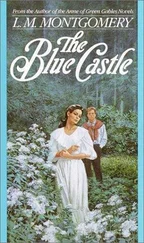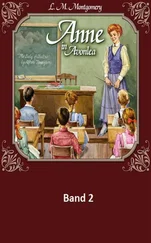Lucy Montgomery - Rilla of Ingleside
Здесь есть возможность читать онлайн «Lucy Montgomery - Rilla of Ingleside» весь текст электронной книги совершенно бесплатно (целиком полную версию без сокращений). В некоторых случаях можно слушать аудио, скачать через торрент в формате fb2 и присутствует краткое содержание. Жанр: Детская проза, на английском языке. Описание произведения, (предисловие) а так же отзывы посетителей доступны на портале библиотеки ЛибКат.
- Название:Rilla of Ingleside
- Автор:
- Жанр:
- Год:неизвестен
- ISBN:нет данных
- Рейтинг книги:4 / 5. Голосов: 1
-
Избранное:Добавить в избранное
- Отзывы:
-
Ваша оценка:
- 80
- 1
- 2
- 3
- 4
- 5
Rilla of Ingleside: краткое содержание, описание и аннотация
Предлагаем к чтению аннотацию, описание, краткое содержание или предисловие (зависит от того, что написал сам автор книги «Rilla of Ingleside»). Если вы не нашли необходимую информацию о книге — напишите в комментариях, мы постараемся отыскать её.
Rilla of Ingleside — читать онлайн бесплатно полную книгу (весь текст) целиком
Ниже представлен текст книги, разбитый по страницам. Система сохранения места последней прочитанной страницы, позволяет с удобством читать онлайн бесплатно книгу «Rilla of Ingleside», без необходимости каждый раз заново искать на чём Вы остановились. Поставьте закладку, и сможете в любой момент перейти на страницу, на которой закончили чтение.
Интервал:
Закладка:
And then Mr. Arnold asked Mr. Pryor to lead in prayer.
Miss Cornelia had always averred that Mr. Arnold had no gumption. Miss Cornelia was not apt to err on the side of charity in her judgment of Methodist ministers, but in this case she did not greatly overshoot the mark. The Rev. Mr. Arnold certainly did not have much of that desirable, indefinable quality known as gumption, or he would never have asked Whiskers-on-the-moon to lead in prayer at a khaki prayer-meeting. He thought he was returning the compliment to Mr. Meredith, who, at the conclusion of his address, had asked a Methodist deacon to lead.
Some people expected Mr. Pryor to refuse grumpily—and that would have made enough scandal. But Mr. Pryor bounded briskly to his feet, unctuously said, "Let us pray," and forthwith prayed. In a sonorous voice which penetrated to every corner of the crowded building Mr. Pryor poured forth a flood of fluent words, and was well on in his prayer before his dazed and horrified audience awakened to the fact that they were listening to a pacifist appeal of the rankest sort. Mr. Pryor had at least the courage of his convictions; or perhaps, as people afterwards said, he thought he was safe in a church and that it was an excellent chance to air certain opinions he dared not voice elsewhere, for fear of being mobbed. He prayed that the unholy war might cease—that the deluded armies being driven to slaughter on the Western front might have their eyes opened to their iniquity and repent while yet there was time—that the poor young men present in khaki, who had been hounded into a path of murder and militarism, should yet be rescued—
Mr. Pryor had got this far without let or hindrance; and so paralysed were his hearers, and so deeply imbued with their born-and-bred conviction that no disturbance must ever be made in a church, no matter what the provocation, that it seemed likely that he would continue unchecked to the end. But one man at least in that audience was not hampered by inherited or acquired reverence for the sacred edifice. Norman Douglas was, as Susan had often vowed crisply, nothing more or less than a "pagan." But he was a rampantly patriotic pagan, and when the significance of what Mr. Pryor was saying fully dawned on him, Norman Douglas suddenly went berserk. With a positive roar he bounded to his feet in his side pew, facing the audience, and shouted in tones of thunder:
"Stop—stop—STOP that abominable prayer! What an abominable prayer!"
Every head in the church flew up. A boy in khaki at the back gave a faint cheer. Mr. Meredith raised a deprecating hand, but Norman was past caring for anything like that. Eluding his wife's restraining grasp, he gave one mad spring over the front of the pew and caught the unfortunate Whiskers-on-the-moon by his coat collar. Mr. Pryor had not "stopped" when so bidden, but he stopped now, perforce, for Norman, his long red beard literally bristling with fury, was shaking him until his bones fairly rattled, and punctuating his shakes with a lurid assortment of abusive epithets.
"You blatant beast!"—shake—"You malignant carrion"—shake—"You pig-headed varmint!"—shake—"you putrid pup"—shake—"you pestilential parasite"—shake—"you—Hunnish scum"—shake—"you indecent reptile—you—you—" Norman choked for a moment. Everybody believed that the next thing he would say, church or no church, would be something that would have to be spelt with asterisks; but at that moment Norman encountered his wife's eye and he fell back with a thud on Holy Writ. "You whited sepulchre!" he bellowed, with a final shake, and cast Whiskers-on-the-moon from him with a vigour which impelled that unhappy pacifist to the very verge of the choir entrance door. Mr. Pryor's once ruddy face was ashen. But he turned at bay. "I'll have the law on you for this," he gasped.
"Do—do," roared Norman, making another rush. But Mr. Pryor was gone. He had no desire to fall a second time into the hands of an avenging militarist. Norman turned to the platform for one graceless, triumphant moment.
"Don't look so flabbergasted, parsons," he boomed. "You couldn't do it—nobody would expect it of the cloth—but somebody had to do it. You know you're glad I threw him out—he couldn't be let go on yammering and yodelling and yawping sedition and treason. Sedition and treason—somebody had to deal with it. I was born for this hour—I've had my innings in church at last. I can sit quiet for another sixty years now! Go ahead with your meeting, parsons. I reckon you won't be troubled with any more pacifist prayers."
But the spirit of devotion and reverence had fled. Both ministers realized it and realized that the only thing to do was to close the meeting quietly and let the excited people go. Mr. Meredith addressed a few earnest words to the boys in khaki—which probably saved Mr. Pryor's windows from a second onslaught—and Mr. Arnold pronounced an incongruous benediction, at least he felt it was incongruous, for he could not at once banish from his memory the sight of gigantic Norman Douglas shaking the fat, pompous little Whiskers-on-the-moon as a huge mastiff might shake an overgrown puppy. And he knew that the same picture was in everybody's mind. Altogether the union prayer-meeting could hardly be called an unqualified success. But it was remembered in Glen St. Mary when scores of orthodox and undisturbed assemblies were totally forgotten.
"You will never, no, never, Mrs. Dr. dear, hear me call Norman Douglas a pagan again," said Susan when she reached home. "If Ellen Douglas is not a proud woman this night she should be."
"Norman Douglas did a wholly indefensible thing," said the doctor. "Pryor should have been let severely alone until the meeting was over. Then later on, his own minister and session should deal with him. That would have been the proper procedure. Norman's performance was utterly improper and scandalous and outrageous; but, by George,"—the doctor threw back his head and chuckled, "by George, Anne-girl, it was satisfying."
Chapter XXI
"LOVE AFFAIRS ARE HORRIBLE"
Ingleside
20th June 1916
"We have been so busy, and day after day has brought such exciting news, good and bad, that I haven't had time and composure to write in my diary for weeks. I like to keep it up regularly, for father says a diary of the years of the war should be a very interesting thing to hand down to one's children. The trouble is, I like to write a few personal things in this blessed old book that might not be exactly what I'd want my children to read. I feel that I shall be a far greater stickler for propriety in regard to them than I am for myself!
"The first week in June was another dreadful one. The Austrians seemed just on the point of overrunning Italy: and then came the first awful news of the Battle of Jutland, which the Germans claimed as a great victory. Susan was the only one who carried on. 'You need never tell me that the Kaiser has defeated the British Navy,' she said, with a contemptuous sniff. 'It is all a German lie and that you may tie to.' And when a couple of days later we found out that she was right and that it had been a British victory instead of a British defeat, we had to put up with a great many 'I told you so's,' but we endured them very comfortably.
"It took Kitchener's death to finish Susan. For the first time I saw her down and out. We all felt the shock of it but Susan plumbed the depths of despair. The news came at night by 'phone but Susan wouldn't believe it until she saw the Enterprise headline the next day. She did not cry or faint or go into hysterics; but she forgot to put salt in the soup, and that is something Susan never did in my recollection. Mother and Miss Oliver and I cried but Susan looked at us in stony sarcasm and said, 'The Kaiser and his six sons are all alive and thriving. So the world is not left wholly desolate. Why cry, Mrs. Dr. dear?' Susan continued in this stony, hopeless condition for twenty-four hours, and then Cousin Sophia appeared and began to condole with her.
Читать дальшеИнтервал:
Закладка:
Похожие книги на «Rilla of Ingleside»
Представляем Вашему вниманию похожие книги на «Rilla of Ingleside» списком для выбора. Мы отобрали схожую по названию и смыслу литературу в надежде предоставить читателям больше вариантов отыскать новые, интересные, ещё непрочитанные произведения.
Обсуждение, отзывы о книге «Rilla of Ingleside» и просто собственные мнения читателей. Оставьте ваши комментарии, напишите, что Вы думаете о произведении, его смысле или главных героях. Укажите что конкретно понравилось, а что нет, и почему Вы так считаете.


